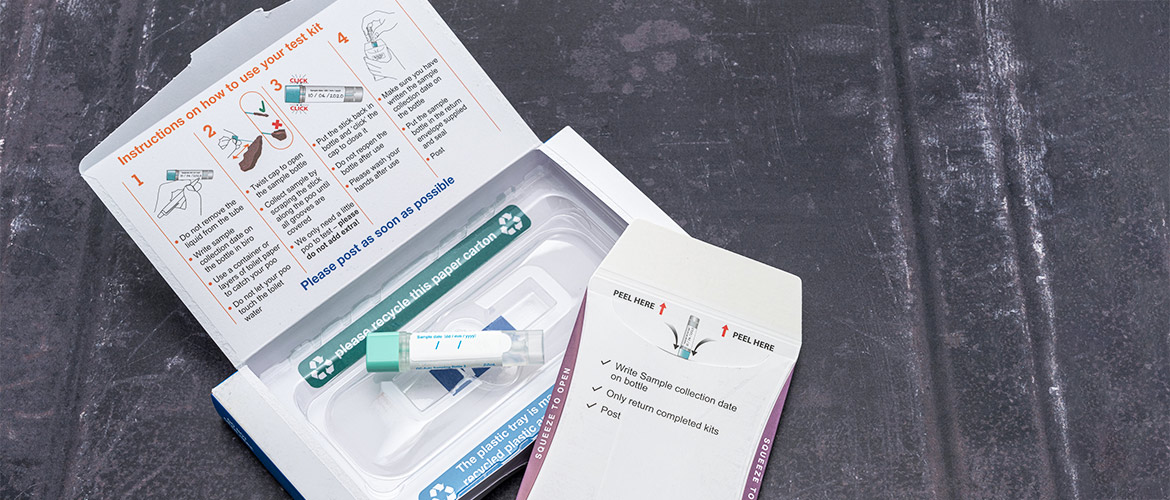As younger people increasingly are diagnosed with colorectal cancer, Health Care Service Corporation (HCSC) is bolstering efforts to help screen members for the disease in its earliest — and most treatable — stages.
A report released by the American Cancer Society estimates 153,000 people in the United States will be diagnosed with colorectal cancer in 2023. Of those people, about 13% will be younger than age 50 — a 9% increase in this age group since 2020.
Overall, colorectal cancer is declining. However, 60% of patients diagnosed already have advanced disease.
To help reduce late-stage diagnoses and improve health outcomes, HCSC plans to distribute almost 70,000 free at-home colorectal cancer screening test kits through its annual home screening initiative. The fecal immunochemical test (FIT) kits will be offered to members of individual and family plans at least 45 years old who have not had a colonoscopy and maintained membership three consecutive years.
“Many of these members would never have gotten screened if they hadn’t been able to do this in their own home,” says Hala Ibrahim, HCSC’s quality improvement senior director. “This simple stool test saves lives, and our members see the value in that.”
Minimizing colorectal cancer’s threat
For years, HCSC has offered FIT kits to targeted member populations to screen themselves for colorectal cancer and return them for analysis. In 2022, more than 13,700 members in Illinois, Montana, New Mexico, Oklahoma and Texas performed the screenings. The company recommended 723 members schedule follow-up colonoscopies because their FIT kit results were abnormal.
“This simple stool test saves lives, and our members see the value in that.”
Results were shared only with the participating members and the primary care provider they identified.
“Members who received the FIT kit are three times more compliant than those who didn’t receive the kit mainly due to the increased awareness, and convenience of at home testing,” Ibrahim says. “SMS reminders are now used to remind members to return their completed Kit or educate them about the preventive screening guidelines.”
Colorectal cancer is the third most common cancer diagnosed in the United States, according to the American Cancer Society. It’s the second most common cause of cancer deaths for men and women combined and expected to cause more than 52,500 deaths in 2023.
The U.S. Preventive Services Task Force recommends colorectal cancer screening for adults ages 45 to 75. In 2021, it lowered the minimum screening age from 50 to 45 to reduce late-stage diagnoses in younger people.
About 72% of Americans between 50 and 75 have been screened, according to the most recent federal data. But that means millions have not. One in 3 adults are not following recommended screening guidelines.
With early detection, colorectal cancer can be treated more effectively. But symptoms often don’t appear until after the cancer has grown or spread when it becomes more difficult to treat.
The FIT kit is one of the least invasive and effective screening tests used to find polyps or colorectal cancer. The convenient home test could substantially improve screening rates and help identify people who may need follow-up care, including colonoscopies.
With a FIT kit, a stick or brush is used to collect a small stool sample, which is returned to a lab where the sample is checked for blood — an early indication of colorectal cancer. A colonoscopy is recommended as a follow-up test if a FIT detects blood.
The test must be repeated annually.
A study in the New England Journal of Medicine shows the FIT kits can help fill screening gaps, as well as reduce care disparities. Kaiser Permanente Northern California eliminated colorectal cancer disparities between Black and white adults after it instituted a regionwide, structured colorectal cancer screening program.
A personal connection
Suzie Schwitters, an HCSC process consultant and FIT kit program manager, understands the threat colorectal cancer poses. A younger relative of hers recently received a stage 3 diagnosis of the disease and endured surgery and rounds of chemotherapy to fight it.
“It’s not something you expect to happen,” she says. “You just never know. But if it’s caught early, it can be easily treated.”

